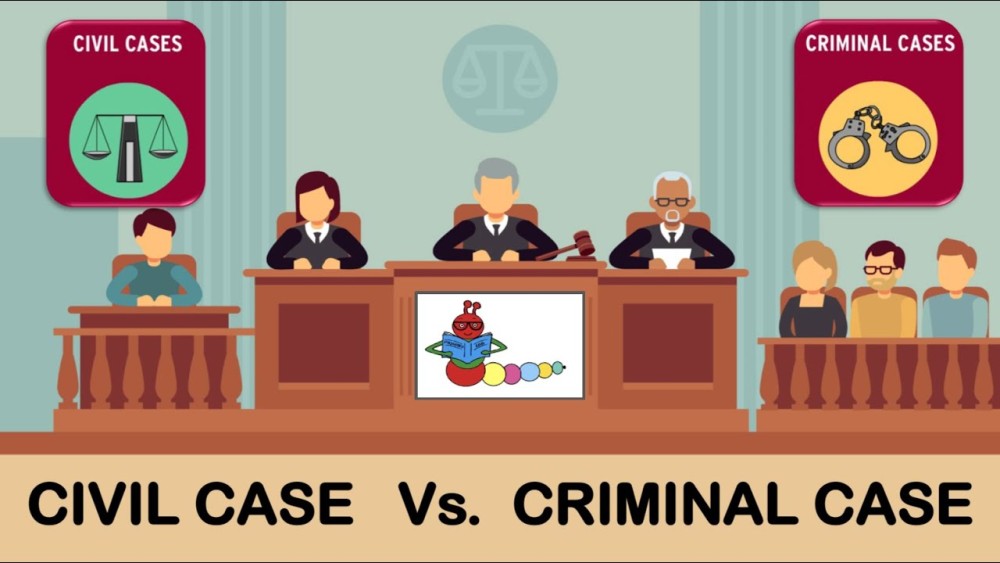
Learn the difference between civil and criminal complaints, when to file each, and how Legal Husk can help you submit a court-ready complaint for your legal needs.
Civil Complaint vs. Criminal Complaint: Which One Do You Need?
Search Intent: Educational
When you're considering legal action, one of the first questions you may face is: What kind of complaint do I need to file? The legal system distinguishes between civil and criminal complaints, and understanding the difference is essential for choosing the correct path. Filing the wrong type of complaint can delay your case or even result in dismissal. This article explains both complaint types and how to determine which is right for your situation.
What Is a Legal Complaint?
A legal complaint is a formal document that initiates a lawsuit. It outlines the parties involved, the facts of the case, the legal grounds for the claim, and the relief sought. However, complaints are not one-size-fits-all. They fall into two broad categories:
Let’s examine each in depth.
What Is a Civil Complaint?
A civil complaint is filed by a private individual or entity (the plaintiff) against another individual, business, or organization (the defendant). The purpose of the complaint is to seek remedies for damages or to compel a specific action, such as compliance with a contract.
Common Types of Civil Complaints:
Civil Complaint Features:
Example:
If a contractor fails to complete your home renovation as agreed, you may file a civil complaint to recover damages.
What Is a Criminal Complaint?
A criminal complaint is filed by the government (prosecution) against an individual or entity accused of violating criminal law. These complaints are often based on reports from victims, witnesses, or law enforcement agencies.
Common Types of Criminal Complaints:
Criminal Complaint Features:
Example:
If someone breaks into your home and steals property, the police or district attorney may file a criminal complaint against the perpetrator.
Can a Single Situation Involve Both?
Yes. Some scenarios lead to both a civil and a criminal complaint. For example, in a case of assault:
These are separate legal actions and are handled independently in court.
How to Determine Which Complaint to File
Ask yourself the following questions:
When in doubt, consult an attorney who can assess your situation and help you choose the appropriate legal pathway.
Filing a Civil Complaint: What’s Involved?
If you’re planning to file a civil complaint, here’s what you’ll need:
Every jurisdiction may have slightly different requirements, which is why working with a legal expert is highly recommended.
Risks of Filing the Wrong Complaint Type
Filing a criminal complaint when you should have filed a civil one—or vice versa—can derail your legal strategy. Mistakes include:
Avoid these pitfalls by consulting professionals who understand the nuances of complaint drafting.
Why Legal Husk Is the Smart Choice
At Legal Husk, we specialize in drafting precise, court-ready complaints tailored to your specific legal needs. Whether you’re pursuing justice in a civil dispute or need help understanding the criminal process, our experienced legal drafters guide you every step of the way.
What You Get with Legal Husk:
We help you:
Final Thoughts: Get It Right the First Time
Understanding whether to file a civil or criminal complaint is critical to the success of your case. Filing the wrong type can waste time, money, and energy. Legal Husk removes the guesswork by offering professional legal drafting services that position your case for success.
If you’re ready to act, don’t risk rejection or confusion—get your complaint done right by experts.
👉 Visit legalhusk.com/services to get started or email us at support@legalhusk.com
Learn
the difference between civil and criminal complaints, when to file each, and
how Legal Husk can help you submit a court-ready complaint for your legal
needs.
Whether you are dealing with a complex family matter, facing criminal charges, or navigating the intricacies of business law, our mission is to provide you with comprehensive, compassionate, and expert legal guidance.